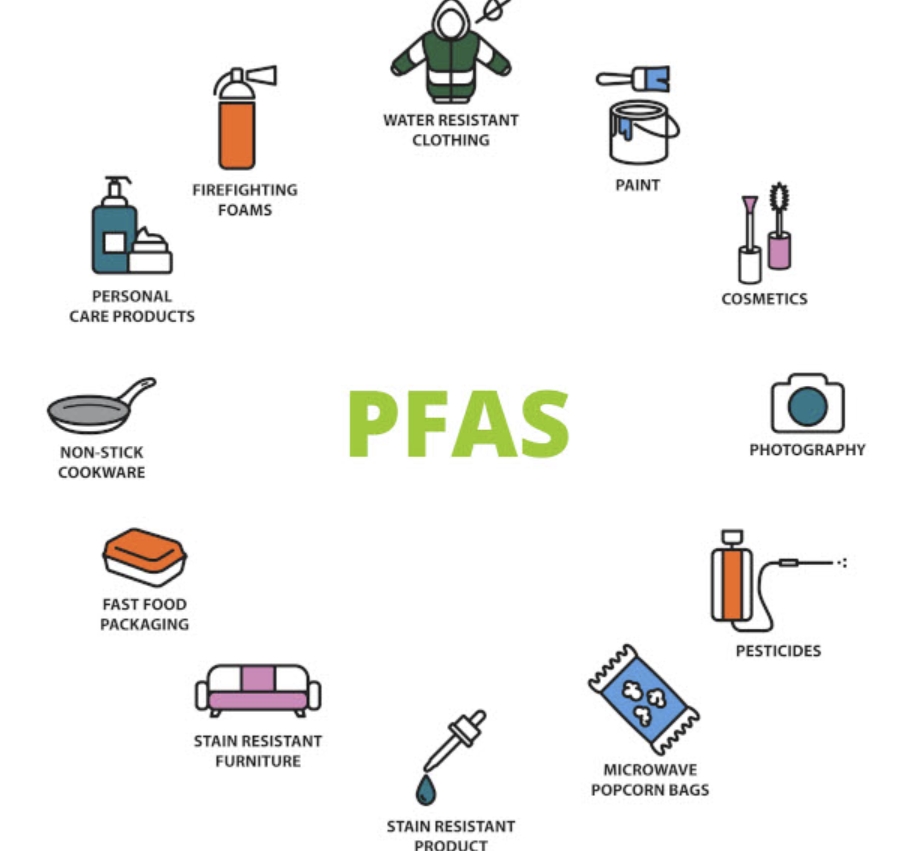What are ‘Forever Chemicals’?
A recent study has found toxic ‘Forever Chemicals’ in drinking water worldwide. These chemicals, known as perfluoroalkyl substances (PFAS), were detected in both tap and bottled water in major cities across the UK and China. Researchers from the University of Birmingham and Hainan University published their findings in ACS ES&T Water.
What are PFAS?
PFAS are synthetic chemicals that do not break down easily in the environment. They are used in many products, including non-stick cookware, water-repellent clothing, and stain-resistant fabrics. Some PFAS have been banned, but many are still in use. These chemicals can enter the body through inhalation, ingestion, or skin absorption. Health effects linked to PFAS exposure include weakened immune response, liver damage, lower birth weight, and increased cancer risk.
Study Findings
The researchers collected 153 water samples. They tested 112 bottled water samples from UK and China shops, including still and sparkling types. They also gathered 41 tap water samples from Birmingham, Worcester, Coventry, and Derby, and 14 samples from Shenzhen, China. Results showed that over 99% of bottled water contained perfluorooctanoic acid (PFOA) and perfluorooctane sulfonate (PFOS).
Concentration Levels
Bottled water varied in PFAS levels. Purified water had lower concentrations than natural mineral water. Most bottled water samples were below health advisory levels set by regulatory agencies. However, tap water in China had higher PFAS levels, with Shenzhen samples exceeding the US EPA’s maximum contaminant level of 4 ng/L.
Health Advisory Levels
Regulatory agencies provide health advisory levels for PFAS. These levels aim to protect public health. The study found that while bottled water generally met these levels, tap water in certain areas, particularly in China, posed a greater risk.
How to Reduce PFAS?
There are effective methods to reduce PFAS in drinking water. Boiling water and using carbon filters can remove up to 90% of these chemicals. Professor Stuart Harrad brought into light that simple treatments can lower PFAS levels.
Implications for Public Health
The widespread presence of PFAS in drinking water has public health implications. About these risks can encourage consumers to take action. Awareness can also drive demand for better water treatment solutions and stricter regulations on PFAS use.
Research Significance
The study underscores the need for ongoing research into PFAS. It marks the importance of monitoring water quality and the potential health impacts of these chemicals. Further studies may help develop strategies to mitigate PFAS contamination in drinking water supplies.
Month: Current Affairs - October, 2024
Category: Environment Current Affairs


